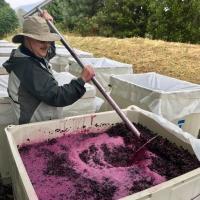-
Welcome to the eG Forums, a service of the eGullet Society for Culinary Arts & Letters. The Society is a 501(c)3 not-for-profit organization dedicated to the advancement of the culinary arts. These advertising-free forums are provided free of charge through donations from Society members. Anyone may read the forums, but to post you must create a free account.
Supreme Court Rules on Interstate Wine Sales
-
Similar Content
-
- 5 replies
- 2,194 views
-
- 1,932 replies
- 385,756 views
-
Shaoxing Wine 1 2
By liuzhou,
- 45 replies
- 24,572 views
-
- 7 replies
- 1,996 views
-
- 12 replies
- 1,301 views
-
-
Recently Browsing 0 members
- No registered users viewing this page.





Recommended Posts